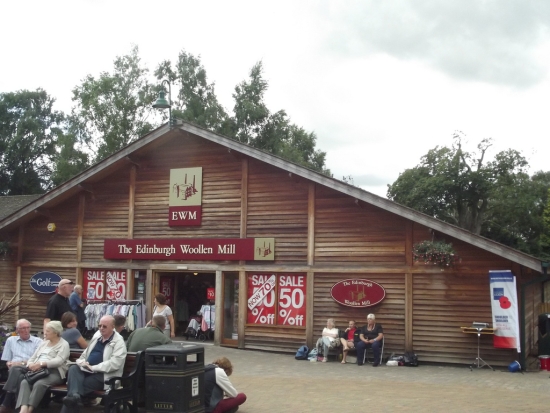During the recession, a wealth of brands entering administration provided investment opportunities for existing retail groups willing to take a risk, with several seeing their decisions pay off now as consumer confidence rises. This has been the case for the Edinburgh Woollen Mill Group, which bought fashion brand Peacocks in 2012 and has seen group sales skyrocket as a result.

The group, which remains one of the largest operators of high street commercial properties in the country, currently owns more than 1,000 UK stores including the near 400 Peacocks stores. However, following the publication of a set of extremely positive annual results, the group has announced its intention to open a further 100 stores over the next 18 months, which will include a number of new Peacocks stores as well as Edinburgh Woollen Mill and Ponden Home branches.
In the 12 months to the 2nd of March, sales grew from £246 million to £567 million when the figures from the Peacocks brand are taken into account. Furthermore, pre-tax profits increased almost three times over, climbing from £20.2 million in the 2011-2012 financial year to £56.7 million.
Although like for like sales rose by only 1.2 per cent, this is largely because sales under the Peacocks bracket cannot be included due to the relatively recent acquisition of stores and assets. Online sales meanwhile, which do include those made on the Peacocks website, climbed by an impressive 60 per cent.
Group commercial director, Steve Simpson, claims that the group is in a strong position to make the most of an expansion drive, which would see the creation of more than 1,100 jobs nationwide.
He says; “UK retail remains a tough environment and we are focused on serving customers who are seeking value at a time of reduced discretionary spend but who will not compromise on quality.
“The group is free of debt so we can leverage a positive balance sheet and focus on a sensible strategy which continues to deliver sustainable growth for the long term.”
Since buying Peacocks out of administration, the Edinburgh Woollen Mill Group has spent a total of £80 million on the brand’s revival. Instead of remaining true to the original discount fashion business plan, the group instead placed a higher emphasis on providing quality items whilst simultaneously working to improve Peacocks’ online offering – a strategy which, according to the annual report, seems to have had runaway success.
As well as expanding the UK commercial property portfolio, the Edinburgh Woollen Mill Group is now examining options in strong international markets such as the Middle East, Germany and Russia. Should the business plan laid out in the UK work equally as well in overseas locations, it could mean that a brand, which only last year was forced into administration, could become one of the true success stories of modern UK retailing.
Previous Post
Amazon Merseyside Warehouse Will Be Biggest in UK